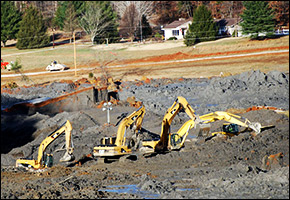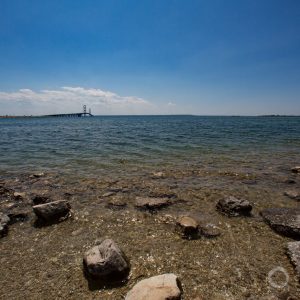Rainy Tennessee Copes with Valley of Ashes

What happens when the earth gives way? Residents and authorities in eastern Tennessee struggle to answer this very question, as 5.4 million cubic yards of spilled coal ash seep into nearby waterways, block roads and flood neighborhoods. When an earthen wall collapsed at the Kingston Fossil Plant, the polluted liquid byproduct of the plant’s coal production process came gushing out.
The volume of contaminated water released from the pond has now reached thrice the quantity that the Tennessee Valley Authority (TVA) — who owns the power plant — initially announced. It is also twice that of the pond’s established capacity. Although officials are not sure of the cause, they believe abnormally high rainfall and cold weather might be possible reasons for the collapse.
As residents worry about the health risks of the water pollution, TVA spokeswoman Barbara Martocci tells the New York Times, “You’re not going to be endangered by touching the ash material. You’d have to eat it. You have to get it in your body.”
Various studies on coal ash warn otherwise. According to an article published last year in the Scientific American, the byproduct can be as dangerous as waste from nuclear power plants. While the TVA acknowledges that current levels of lead and thallium exceed EPA standards, federal studies indicate that coal ash often also contains dangerous concentrations of metals and carcinogens.
Donald Smith, 58, a laboratory facilities manager who lives near the spill, remains unimpressed with TVA’s reaction. “They’re making an effort. But what upsets me is they didn’t have a plan in place. Why hadn’t anybody thought, ‘What happens if this thing bursts?’”
Source: The New York Times, Scientific American







For a pre-New Year update on the Kingston spill, read this article from the New York Times: http://www.nytimes.com/2008/12/30/us/30sludge.html?em